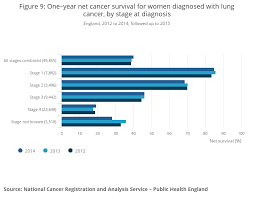Understanding Stage 4 Cancer: Insights and Support

Introduction
Stage 4 cancer, often referred to as metastatic cancer, is the most advanced stage of the disease and signifies a critical phase for patients. It is characterized by the spread of cancer cells from the original site to distant organs and tissues, making understanding its implications essential for patients, families, and healthcare providers. The journey at this stage can be overwhelming, but awareness of treatment options, available support, and advancements in care can empower those affected.
Details of Stage 4 Cancer
According to the National Cancer Institute, stage 4 indicates that the cancer has spread from its original location to other parts of the body. For example, breast cancer can spread to the bones, lungs, or brain, while colon cancer can metastasize to the liver. The prognosis for stage 4 cancer varies significantly depending on factors such as cancer type, location, patient’s overall health, and response to treatment.
Treatment options for stage 4 cancer can include systemic therapies such as chemotherapy, immunotherapy, and targeted therapy, which aim to control the growth of cancer cells and alleviate symptoms rather than cure the disease. Clinical trials are also available, providing access to cutting-edge therapies. Palliative care plays a crucial role in the management of symptoms and improving patients’ quality of life.
Recent Developments
Recent studies have shown promising results in the management of stage 4 cancer, with new drug combinations and therapies emerging that enhance survival and reduce side effects. For instance, advancements in immunotherapy have shown efficacy in extending life expectancy for some patients. Research from leading oncological institutions has emphasized the importance of personalised medicine, tailoring treatment plans that align with the genetic profile of an individual’s cancer.
Support for Patients and Families
For those diagnosed with stage 4 cancer, support is crucial. Various cancer organizations offer resources, from counseling services to support groups, encouraging open dialogue among patients and caregivers. It’s essential for families to engage in discussions about treatment decisions, expectations, and end-of-life care, fostering an environment of compassion and understanding.
Conclusion
Stage 4 cancer is undeniably a challenging diagnosis, but it is essential to remember that many patients continue to lead fulfilling lives with proper management and support. As research continues to advance, the outlook for individuals diagnosed with stage 4 cancer becomes increasingly optimistic. Ongoing awareness and education regarding treatment options and support mechanisms can significantly improve the quality of life for patients and their families, making a critical difference in their cancer journey.









